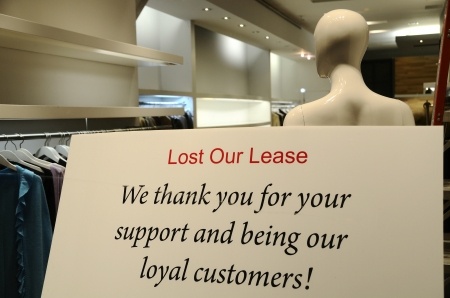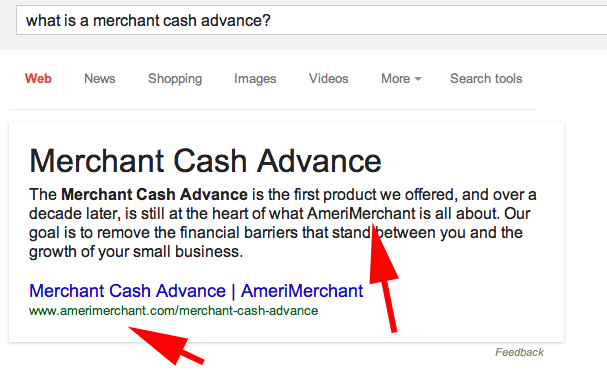MPR Authored
Largest Merchant Acquirers of 2013
April 12, 2014According to the Nilson Report, the 10 largest merchant acquirers of 2013 were:
1. Bank of America
2. Chase Paymentech Solutions
3. First Data
4. Vantiv
5. Elavon
6. Wells Fargo Merchant Services
7. Citi Merchant Services
8. Global Payments
9. Heartland Payment Systems
10. WorldPay
The only 2 changes in the top 10 were:
First Data fell from 2 to 3
Citi Merchant Services fell from 6 to 7
Would You Fund This Business?
April 12, 2014 Is the site inspection dead?
Is the site inspection dead?
One of the strangest byproducts of the automation age is that underwriting tools once deemed absolutely essential are being replaced with APIs, digital verifications, and algorithmic scoring. Speed is everything, but why?
Faster speed through automation allows for scaleability. The promise of speed to a potential customer also encourages them to apply. Working capital can be an impulse decision now. You don’t even need to leave your chair to get $80,000 for your small business. But who’s making sure these businesses are sound… or more importantly, that they even exist?
I learned through conversations at Transact 14 that there is a growing dependency on Google Earth for site verification, more specifically Street View. Really??? Street View?!
While tech heavy funding companies laud real-time data through hundreds of APIs, it’s amusing to think that something like Street View, which might not be updated for months or years at a time, suffices as a site verification. Indeed, Street View still shows Christmas decorations in my home town.
Google Earth can pinpoint the obvious things like showing you something is located in the middle of nowhere:

But can it show you this sign located inside?

And how would you know if the writing was literally on the wall if it just went up yesterday?

Or that everything is completely on the up and up except that the business will be:

If you had the chance to speak with Jason Fullen or Joe Volk at NVMS during Transact 14, you’d know that site inspections performed by real live humans can be done in the same day they’re ordered. Or if you were getting wild at the Quiktrak party, you’d know that many of the older merchant cash advance companies still rely on site inspections, particularly on large deals.
How dumb would you feel if the $150,000 deal you funded looked like this on the inside?

Investigate a little
Who better to know the scoop on the business than the locals? I am reminded of the time a $100,000 deal I worked on where the site inspector commented that a restaurant was actually a front for a brothel that was likely going to get shut down.
I also recall almost funding a $100,000+ supermarket until the site inspection revealed that all of the shelves in the store were empty. I guess that merchant wasn’t lying when they said they needed the money to buy inventory!
And there was my own personal trip to a Brazilian Steakhouse for the final approval on an MCA deal based on credit card transactions. The server politely informed me at the end of my meal that the establishment no longer accepted credit cards as of a few days ago. How convenient…
Can social media be our eyes?
In the social media era, it’s almost as if a million site inspections are being conducted every minute. Can reviewer data be our eyes?



If there are too few reviews or they’re aged, can you rely on all your other data points? Can you trust that the available reviews are from real customers?
Speed is king these days, but ignorance is never in style. One has to consider if they can trust external data versus what they see with their own two eyes. We’ve all seen deals that looked great on paper, but turned out to be complete

After further review of the deal:

Should we fund businesses we never see? It’s your call.
Is Alternative Lending a Game of Thrones?
April 8, 2014 It was the best of times, it was the worst of times, it was the age of wisdom, it was the age of foolishness, it was the epoch of belief, it was the epoch of incredulity, it was the season of Light, it was the season of Darkness, it was the spring of hope, it was the winter of despair, we had everything before us, we had nothing before us…
It was the best of times, it was the worst of times, it was the age of wisdom, it was the age of foolishness, it was the epoch of belief, it was the epoch of incredulity, it was the season of Light, it was the season of Darkness, it was the spring of hope, it was the winter of despair, we had everything before us, we had nothing before us…
This blog has been many things over the years, all of it relative to who the reader was. It has encouraged and deterred, informed and confused, made people laugh or stoked their anger. The merchant cash advance industry it spoke of had been small. Annual funding volume was a billion or two or three, a blip of a blip on nobody’s radar. There was a sense of unity, a shared objective amongst competitors. They were guided by one dictum, “grow, but don’t rock the boat.”
But opportunity enticed everyone, the good, the bad, and the unexpected, and it brought a relatively peaceful chapter to an end. Winter is coming, Eddard Stark would likely say of the uncertainty that hangs in the air. Merchant cash advance has become a spoke in the alternative lending wheel that is spinning forward uncontrollably. Non-bank financing has become a worldwide phenomenon virtually overnight, setting the stage for the lords of funding to play a game of thrones. Investors with bottomless pockets are emptying them, government agencies are assessing the landscape or crafting responses, and journalists stand ready to shape public opinion.
This is a transformational moment in human history, perhaps bigger than what Facebook did for social media. Individuals are taking control of the monetary supply. Strangers pay each other in bitcoins, neighbors are bypassing banks for loans and lending to each other instead, and businesses are rising and falling with the funding they get from other private businesses. Winter is coming for traditional banking. The realm calls for a new king.
Wonga’s epic rise is being countered by both regulatory and religious resistance, and the man who dared the world to lend algorithmically has admitted defeat. Peer-to-peer lenders have encountered massive regulatory setbacks on their road to stardom and merchant cash advance companies are currently engaged in a civil war over best practices. Winter is coming indeed.
The Kings
 Lending Club
Lending Club
In what is perhaps their first step towards an IPO this year, Lending Club is reducing transparency over its loan volume. Up until April 3rd, anyone could see how many loans they issued on a daily basis. Now this information will only be available quarterly. Peter Renton in his Lend Academy blog shared his belief that the move was entirely tied to the impending IPO. “Without this daily loan volume information their stock price will be less volatile and they will be able to “manage the message” with Wall Street every quarter,” Renton wrote.
OnDeck Capital
OnDeck Capital is also in contention for an IPO this year. A year ago a company executive hinted that becoming a public company would not be on the agenda for consideration until 2015, yet I am hearing rumors that they may make a late 2014 go at it. Such rumors hold weight in light of reports that they are cleaning up their ISO channel. Insiders on DailyFunder are saying that resellers with abnormally high default rates are in jeopardy of being cut off.
OnDeck Capital is unique in that outsiders chastise them for their rates being too high while insiders argue their rates are too low to be profitable. It’s a classic example of how tough the court of public opinion can be on a lender even if they are not getting rich off their loans.
Kabbage
Kabbage came and conquered the entire online space before anyone had a chance to blink. PayPal, ebay, Amazon, Etsy, Yahoo, Square, they claimed those territories for themselves and then launched an attack into the brick and mortar space. Kabbage’s secret value is their patents. They are a serious player on a serious path.
CAN Capital
CAN Capital’s greatest weakness is their lifespan. They’ve managed to stay on top after 16 years in the business but that makes them old enough to be Kabbage’s grandfather by today’s tech standards. As a pre-dot com era business, it’s impossible to argue against their sustainability. If anyone has alternative lending figured out for both the good times and the bad, it’s CAN Capital.
The Lords
The Government
 Peer-to-peer lending has already been under strong scrutiny from the Federal Government. Lending Club and Prosper are regulated by the Securities and Exchange Commission these days, but they may never be free of oversight. Just two months ago, the Federal Reserve published a report on trends in peer-to-peer business lending. They hinted at further regulation.
Peer-to-peer lending has already been under strong scrutiny from the Federal Government. Lending Club and Prosper are regulated by the Securities and Exchange Commission these days, but they may never be free of oversight. Just two months ago, the Federal Reserve published a report on trends in peer-to-peer business lending. They hinted at further regulation.
As small business owners are increasingly turning to this alternative source of money to fund their businesses, policy makers may wish to keep a close eye on both levels and terms of such lending. Because such loans require less paperwork than traditional loans, they may be considered relatively attractive. However, given the relatively higher rate paid on such loans, it may be in the best interest of the business owner to pursue more formal options. More research is required to understand the long-term impact of such loans on the longevity of the firm and more education to potential borrowers is likely in order.
– a 2014 Federal Reserve study
The Merchants
Once upon a time nobody talked about alternative lending online except for the companies offering it. Merchants didn’t talk about it with each other or there were too few businesses to give rise to centralized discussions. Today, merchants communicate and compare notes:
Merchants discuss PayPal’s working Capital program: http://community.ebay.com/t5/PayPal/PayPal-Working-Capital-Loan-DONT-SIGN-UP/td-p/17630207
Merchants discuss Square’s merchant cash advance program: http://www.mrmoneymustache.com/forum/welcome-to-the-forum/square-to-offer-small-business-loans-at-exorbitant-interest-rates/
Merchants discuss Kabbage: http://community.ebay.com/t5/Part-time-eBay-Sellers/Kabbage-quot-loans-quot/td-p/3002329
OnDeck Capital’s 30+ Yelp Reviews: http://www.yelp.com/not_recommended_reviews/FOndxpkaBRP6LVIlOv6Dfw
Potential Lending Club borrowers make their cases: http://www.lendacademy.com/forum/index.php?board=3.0
The Machines
Are computers better predictors of performance than humans? Some people think so. This debate will play a pivotal role in the future of alternative lending.
The Media
Public opinion will be at their mercy.
The Vulnerabilities
 Commissions
Commissions
The bigger alternative lending gets, the juicier the stories become. Just last week, Patrick Clark of BusinessWeek dove head first into the reseller model, revealing insider commissions, the truth about buy rates, and the alleged antiquated practice of enlisting a broker to secure funding. On trial was a documented 17% commission, an example I believed to be an extreme case. For a long time commissions ranged between 5% and 10% on average. But there are some big names paying up to 12 points and others boasting of 14. All were topped by the mass solicitation I received a few days ago that promised a 20% commission. These kind of figures if they continue will become an easy target for journalists looking to portray the industry in a negative light.
Stacking
There is a raging civil war within the merchant cash advance community specifically over stacking. This is the instance that a merchant sells their future revenues to two or more parties at the same time, leading to multiple daily deductions from their sales. This debate is bound to spill out into the mainstream if it cannot be resolved on its own.
Technology
Some funding companies intend to license their automated underwriting technology to banks, potentially handing the keys of alternative lending’s greatest asset (speed) to traditional bankers. It is unlikely that banks would engage in some of the high risk deals that alternative lenders target but they could recapture the top credit tier borrowers that have been flocking away from them.
Also at stake here is the sustainability of algorithmic underwriting. There are critics that believe computers appear to make great decisions during good economic periods but suffer during downturns. Do the technology based funding companies have enough data to weather a future economic storm?
So many things are happening at once, that it’s impossible to know what fate awaits the realm. Will there be a new king or will alternative lending fall apart like a house of cards?
For those of us climbing to the top of the food chain, there can be no mercy. There is but one rule: hunt or be hunted.
-Frank Underwood
May the best man win.
Join Me at Transact 14
April 1, 2014 I’ll be at the ETA’s Transact 14 Conference in Las Vegas next week (Apr 8 – 10) wearing my journalist hat for DailyFunder. DailyFunder is currently the only publication dedicated to merchant cash advance and alternative lending and is a media sponsor of this year’s event. All attendees will be able to pick up a free copy of the latest issue of the magazine at designated distributions bins.
I’ll be at the ETA’s Transact 14 Conference in Las Vegas next week (Apr 8 – 10) wearing my journalist hat for DailyFunder. DailyFunder is currently the only publication dedicated to merchant cash advance and alternative lending and is a media sponsor of this year’s event. All attendees will be able to pick up a free copy of the latest issue of the magazine at designated distributions bins.
If you’re on the fence about going, allow me to convince you. The Annual ETA hosted conference is more than a social event or meet and greet. It’s a chance to ink deals, forge partnerships, and learn about opportunities that you’ll never hear about from the comfort of your office. Of course you’ll only get out of it what you put into it. The Who’s Who of payments and financing will be all in one place. Are you one of them?
CNBC will be broadcasting the event live. It’s been reported that this year’s show has enlisted a record amount of exhibitors.
Going to be our biggest show in history! MT @MWarehouse: Who's going to #ETATRANSACT next week in #Vegas? pic.twitter.com/5zFiUm8qbY
— Jason Oxman (@joxman) April 1, 2014
I’ll be taking photos and jotting down notes for both the live blog and post show recap for the May/June issue of the magazine. So if you’ve got something cool to show off, email me at sean@merchantprocessingresource.com or sean@dailyfunder.com and I’ll be happy to come pay you a visit.
pre-registration for the event closes in less than 5 hours but you’ll be to get tickets on site.
And of course if you’re planning to bring your wolf pack to Vegas, you might want to read DailyFunder’s helpful tips on how to keep your wolf pack in check. 😉
Hope to see you there.
Errol Damelin’s Legacy
April 1, 2014 Wonga’s been a point of interest ever since they tried to buy OnDeck Capital and set up shop in the United States. Far from your average run-of-the-mill UK-based payday lender, they rode the technology wave to international fame. Founder Errol Damelin doesn’t believe in human risk analysis as I’ve cited several times before. He lives by the law of data and algorithms are his muse.
Wonga’s been a point of interest ever since they tried to buy OnDeck Capital and set up shop in the United States. Far from your average run-of-the-mill UK-based payday lender, they rode the technology wave to international fame. Founder Errol Damelin doesn’t believe in human risk analysis as I’ve cited several times before. He lives by the law of data and algorithms are his muse.
But It hasn’t been all rainbows and unicorns to get to the top. The archbishop of Canterbury told Damelin that he wanted him competed out of existence. Wonga became a religious issue and then a parental one when parents protested that children were being solicited with payday loan offers. And there was the little problem of the algorithm not delivering flattering results. More than a year ago I wrote of my shock when I learned that their bad debt had risen to 41% of their revenues, an astoundingly poor figure for a system that was being heralded as superior to human risk analysis.
Wonga’s been accused of preying on women and ruining lives. They’ve had their sponsorships protested on religious grounds and Damelin himself has even faced criticism for his own religion from the dark bowels of the Internet.
 It’s been said that it was never really about lending for Damelin, who often times categorized Wonga as a technology company (something we’ve heard before in the U.S.).
It’s been said that it was never really about lending for Damelin, who often times categorized Wonga as a technology company (something we’ve heard before in the U.S.).
Despite all the outside criticism, it’s been reported that Wonga’s customers are nearly twice as satisfied with them as they are with their banks and even more so than customers of Apple and Google. Wonga seems to make everyone upset but the borrowers, but it hasn’t been any consolation.
The UK’s Financial Conduct Authority’s intent to regulate them has been the last straw for Damelin. Weary of never ending battle, he is resigning from his post. Though it’s said he will continue to play a role, it’s clear that the mojo is gone. Wonga will be regulated, restrained, and will perhaps endure or be dismantled.
Damelin’s legacy is a 15 minute loan approval that is based off of 8,000 data points. He never proved that algorithms could assess risks better than humans, but he has inspired alternative lenders around the world to pursue ultra lean lending models built for massive scalability.
Great technology exists. Damelin dared us all to use it…
Yellowstone Capital Matures With New Executive Team
March 30, 2014 In an email newsletter that went out this morning, NYC-based Yellowstone Capital announced changes and additions to their executive team.
In an email newsletter that went out this morning, NYC-based Yellowstone Capital announced changes and additions to their executive team.
- Managing Partner Isaac Stern who has long been the public face of the firm is now the Chief Executive Officer.
- Marwan Salem is now the Chief Financial Officer.
- Josh Karp has been named the Chief Operating Officer.
Stern’s partner David Glass will keep his stake in the firm and continue to play an operational role.
The newsletter states, “Gangbuster growth hardly describes what Yellowstone Capital has experienced in the last 12 months. Deal flow has simply been huge.”
Yellowstone Capital was dubbed by DailyFunder to be one of the three most talked about funding companies of 2013. In perhaps recognition of the adage, if it ain’t broke, don’t fix it, the newsletter states, “Yellowstone Capital will continue to pursue less-drastic changes in its capital structure that preserve the winning formula.”
Merchant Cash Advance Syndication: Crowdfunding?
March 28, 2014 You might not have known this, but one of the most lucrative opportunities in merchant cash advance is the ability to participate in deals. It’s a phenomenon Paul A. Rianda, Esq addressed in DailyFunder’s March/April issue with his piece, So You Want to Participate?
You might not have known this, but one of the most lucrative opportunities in merchant cash advance is the ability to participate in deals. It’s a phenomenon Paul A. Rianda, Esq addressed in DailyFunder’s March/April issue with his piece, So You Want to Participate?
Syndication is industry jargon of course. You probably know the concept by its sexier pop culture name, crowdfunding. For all the shadowy rumors and misinformation that circulates out there about merchant cash advance companies, they’re similar to the trendy financial tech companies that have become darlings of the mainstream media.
Did you know that many merchant cash advances are crowdfunded? To date, no online marketplace has been able to gain traction in the public domain aside from perhaps FundersCloud, so crowdfunding in this industry happens almost entirely behind the scenes. There is so much crowdfunding taking place that it’s becoming something of a novelty for one party to bear 100% of the risk in a merchant cash advance transaction. Big broker shops chip in their own funds as do underwriters, account reps, specialty finance firms, hedge funds, lenders, and even friends and family members of the aforementioned.
Merchant cash advance companies find themselves playing the role of servicer quite often, which is coincidentally the model that Lending Club is built on. A $25,000 advance to an auto repair shop could be collectively funded by 10 parties, but serviced by only 1. Each participant is referred to as a syndicate. This is not quite the same system as peer-to-peer lending because syndicates are not random strangers. Syndication is typically only open to businesses, and most often ones that are familiar with the transaction such as the company brokering the deal itself.
In the immediate aftermath of the ’08-’09 financial crisis, some merchant cash advance companies became very mistrusting of brokers and deal pipelines were going nowhere. Underwriters had a list of solid rebuttals for deals they weren’t comfortable with. “If you want us to approve this deal so bad, why don’t you fund it yourself!,” underwriters would say. Such language was intended to put a broker’s objections over a declined deal to bed. But with all the money being spent to originate these deals, it wasn’t long until brokers stumbled upon a solution to put anxious merchant cash advance companies at ease. “Fund it myself? I’d love to, but I just can’t put up ALL of the cash.”
And so some brokers started off by reinvesting their commissions into the deals they made happen. That earned them a nice return, which in turn got reinvested into additional deals. Fast forward a few years later and deals are being parceled out by the truckload to brokers, underwriters, investors, lenders, and friends. There’s a lot of money to be made in commissions but anybody who’s anybody in this business has a syndication portfolio. The appetite for it is heavy. Wealthy individuals and investors spend their days cold calling merchant cash advance companies, brokers, and even me, trying to get their money into these deals. They know the ROI is high and they want in.
 That’s the interesting twist about crowdfunding in the merchant cash advance industry. You can’t get in on it unless you know somebody. There are no online exchanges for anonymous investors to sign up and pay in. It requires back door meetings, contracts, and typically advice from sound legal counsel. A certain level of business acumen and financial prowess are needed to be considered. These transactions are fraught with risk.
That’s the interesting twist about crowdfunding in the merchant cash advance industry. You can’t get in on it unless you know somebody. There are no online exchanges for anonymous investors to sign up and pay in. It requires back door meetings, contracts, and typically advice from sound legal counsel. A certain level of business acumen and financial prowess are needed to be considered. These transactions are fraught with risk.
In Lending Club’s peer-to-peer model, investors can participate in a “note” with an investment as small as $25. This is a world apart from merchant cash advance where it is commonplace to contribute a minimum of $500 per deal but can range up to well over $100,000.
Lending Club defines diversification as the possession of more than 100 notes. At $25 a pop, an investor would only need to spend $2,500. With merchant cash advance, 100 deals could be $50,000 or $10,000,000. By that measure, syndication is crowdfunding at the grownup’s table, a table that doesn’t care about sexy labels to appease silicon valley, only yield.
Strange merchant cash advance jargon keeps the industry shrouded in mystery. Did you know that split-funding and split-processing are terms often used interchangeably? Or that they have a different meaning than splitting? Or that the split refers to something else entirely?
Do you know what a holdback is or a withhold? How about a stack, a 2nd, a grasshopper, an ISO, an ACH deal, a junk, a reup, a batch, a residual, a purchase price, a factor rate, or a UCC lead?
Paul Rianda did a great job detailing the risks of syndication, but there is one thing he left unsaid, and that’s if you’re going to participate in merchant cash advances, you better be able to keep up with the conversation.
At face value, syndication is nothing more than crowdfunding. But if your reup blows up because some random UCC hunting ISO stacked an ACH on top of your split while junking him hard and upping the factor with a shorter turn, you just might curse the hopper that ignored your holdback and did a 2nd. And on that note, perhaps it’s better that the industry refrain from adopting mainstream terminology. We wouldn’t want everybody to think this business is easy. Because it’s not.
One factor to consider is the actual product being crowdfunded. In equity crowfunding, participants pool funds together to buy shares of a business. In crowdlending, participants pool funds together to make a loan. But in merchant cash advance syndication, participants pool capital to purchase future revenues of a business. An assessment is made to predict the pace of future income and a discounted price is paid to the business owner upfront. That purchase price is commonly known as the advance amount.
Syndication has more in common with equity crowdfunding than crowdlending. If you buy future revenues and the business fails, then your purchase becomes worthless. There is typically no recourse against the business owner personally unless they purposely interfere with the revenue stream and breach the agreement. Sound a bit complicated? It is, but crowdfunding in this space is prevalent nonetheless. To get in on it, you need to know someone, and to do it intelligently, you better know what the risks are.
If you want to sit at the grownup’s table and syndicate, consult with an attorney first. There’s a reason this industry hasn’t adopted sexy labels. It isn’t like anything else.
The Best Free Lead Source
March 25, 2014In what is likely a Knowledge Graph hiccup, Google is giving New York-based AmeriMerchant a wonderfully free source of advertising. Merchant Cash Advance is a product in a multi-billion dollar a year industry. What is a merchant cash advance, you ask? Why it’s something that only AmeriMerchant invented and offers apparently.

What’s perhaps more ironic is that AmeriMerchant is famous for overturning another company’s patented claim to merchant cash advances. In the mid-2000s, AmeriMerchant led a charge against the alleged merchant cash advance inventor AdvanceMe. In a landmark case that overturned AdvanceMe’s patent and put AmeriMerchant’s CEO on the front page of the New York Times, merchant cash advance became the property of no single company. Today, merchant cash advances are offered directly or indirectly by more than a thousand companies nationwide.
I wonder how much AmeriMerchant is banking off this…





























